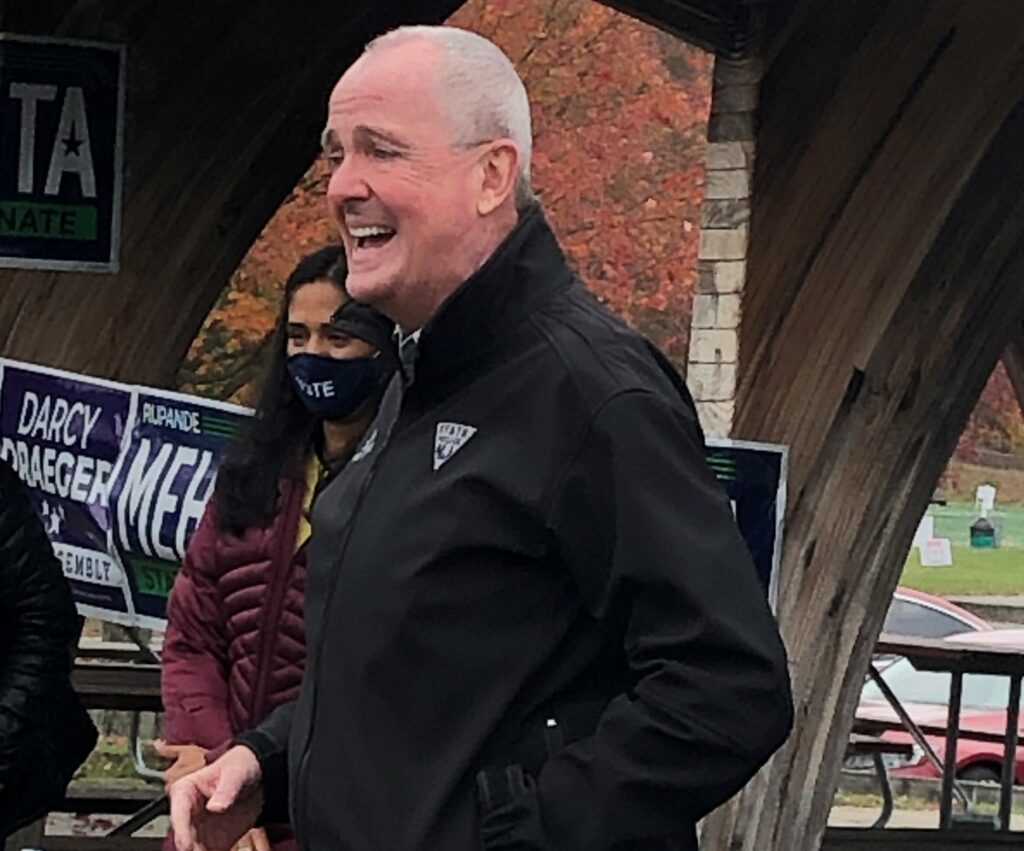Rescue NJ: Court Transfers Case Against Governor to Appellate Division

Court Transfers Case Against Governor to Appellate Division
(Morris Plains, NJ) A Sussex County business owner’s case against Gov. Phil Murphy for his violations of the Disaster Control Act advanced on Friday, after a judge in the Superior Court Morris/Sussex Vicinage granted its transfer to New Jersey’s Appellate Division.
Judge Stuart A. Minkowitz granted in part the Motion for Reconsideration that attorneys filed on Oct. 2 on behalf of Darlene Pallay who owns JWC Fitness LLC., a business in Sussex County’s Franklin Borough, which does business as CKO Kickboxing Franklin. Minkowitz also vacated his previous order from Sept. 30, in which he dismissed the case from the Morris County Law Division, justifying it could only be refiled as a new complaint within the Appellate Division of the Superior Court.
Attorneys for Murphy with the Attorney General’s Office Assistant Attorney General Kevin R. Jesperson and Deputy Attorney General Amy E. Stevens, filed a motion on Oct. 15 opposing Pallay’s Motion for
Reconsideration filed by her attorneys Robert W. Ferguson, Esq., of the law firm of Stern, Kilcullen and Rufolo, LLC of Florham Park and Catherine M. Brown, Esq., of Denville.
Minkowitz based his decision, according to the order, on Court Rule 1:13-4, as well as the case Neptune v. State, Dept. of Envir., that when a case ought to be in the Appellate Division initially, it should be transferred for reason, not dismissed.
Ferguson and Brown filed the initial complaint against Murphy for Pallay on Sept. 23, facilitated by the newly formed, not-for-profit and non-partisan advocacy group, Rescue New Jersey. The suit seeks a declaratory judgment against Murphy, requesting Murphy to establish Emergency Compensation Boards as part of the Disaster Control Act, something he has failed to do.
“We are pleased by the court’s ruling and look forward to vindicating our client’s rights in the Appellate
Division,” Ferguson said.
“Rescue New Jersey is pleased with the Judge’s decision and looks forward to putting forth a brief to the
Appellate Court, where Mrs. Pallay can hopefully get the justice she so desperately needs and deserves,”
said Rescue New Jersey’s Chairman, Donald Dinsmore.
“I am very pleased and hopeful at this latest development and I am remaining hopeful that we will be victorious at each step to help my business, as well as all businesses in New Jersey,” Pallay said.
When Murphy invoked the Act in March, ordering businesses like Pallay’s that he deemed were “nonessential” to close, as required by the Act, Murphy was mandated to establish Emergency Compensation Boards in each of New Jersey’s 21 counties, during the prolonged COVID-19 state of emergency – a state of emergency Murphy recently extended for the eighth time.
According to the Act, individuals or businesses are entitled to petition their respective county Compensation Board for reasonable compensation, in exchange for the Governor taking, using or controlling their property, even temporarily, during the state of emergency. In a state of emergency, Ferguson said the statute gives the Governor one power with respect to private property, and that he can only do so subject to compensation.
Pallay’s business has struggled under the strict restrictions Murphy has imposed. While she has family who live in Long Island and North Carolina where fitness businesses have been permitted to operate at full capacity, Murphy has only allowed businesses like Pallay’s to reopen with an indoor maximum state
occupancy level of 25 percent. With Pallay’s classes high-intensity, interval training sessions, her class size is capped at 10 students per class, with 200 square feet required between each student.
Prior to the shutdown, Pallay’s classes could fill with up to approximately 30 students. Under Murphy’s edicts, she said she could not fulfill the CKO franchise business model, which offered unlimited classes to all of her members. Additionally, her membership thinned from more than 200 loyal members to 20.
At her most recent classes, Pallay would often average between five to eight students per class. She unfortunately had no choice but to close her doors and hold her final class on Oct. 30.
A reply brief and affidavit submitted to Minkowitz on Oct. 22 from Ferguson and Brown, detailed Pallay’s plight, calling her a “law-abiding, taxpaying citizen of this State,” who helped to support her family over the last decade with her business, including her three young children.
“She complied fully with the Governor’s Executive Orders, nothwithstanding the personal economic cost to her and her family,” the brief read. “She won Congressional recognition for COVID-related activities that benefitted her community.”
“Mrs. Pallay’s circumstances are parlous, dynamic and worsening,” the brief further stated, emphasizing in addition to facing an eviction proceeding from her commercial landlord, “she has creditors and she has expenses she cannot afford to pay.”
For more information about Rescue New Jersey, go to: www.rescuenewjersey.org.







